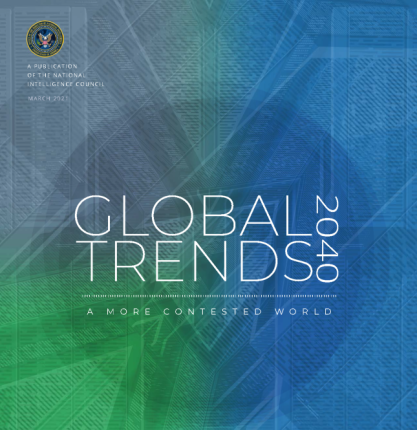-
The Top 5 Posts of June 2021
July 8, 2021 By Holly Sarkissian
In our top post for June, Steve Gale shares 5 consequences out of the National Intelligence Council’s recently released Global Trends report that development actors should be particularly attuned to. In addition to the “long tail” of the COVID-19 pandemic, the report recognizes the environmental consequences of climate change, including unprecedented numbers of wildfires, increased intensity of tropical storms, and sea-level rise. As a result, migration will be more pronounced and require more targeted aid approaches as demographics shift.
To prepare for climate change’s impacts, the Green Climate Fund (GCF) collaborates with partner institutions around the world to build capacity and finance low-emissions projects in countries most vulnerable to the consequences of climate change. In June’s fourth top post, Anuj Krishnamurthy reports on a Wilson Center event focused on the GCF’s role in climate action and what can be done to raise ambition. As Ambassador Mark Green, President and CEO of the Wilson Center, said, “[the international community] has an opportunity in how we respond to climate change, to build greater food and water security, to build new paths to employment, and to provide clean power to the nearly 1 billion people without electricity today.”
In our fifth top post, Daniel Abrahams explores how framing climate change as a “threat multiplier” may limit the scope for development policy and programming. Broadening the scope for addressing climate security—e.g., identifying opportunities for peacebuilding, considering the conflict risks of adaptation, and addressing the conflict drivers of climate change vulnerability—could provide clearer entry points for development practitioners to address climate insecurity.
June was Pride Month and, appropriately, our second top post for the month, written by Susie Jolly, examines how heteronormativity—the belief that particular forms of heterosexuality are the default, preferred, or normal mode of relationships and expression and the systematic privileging of those kinds of relationships and expressions—affects every facet of society, but disproportionality impacts the LGBTQI+ community. In response to COVID-19, some governments have incorporated policies to implement gender segregation or use state violence against LGBTQI+ people to limit the spread of the virus. Jolly discusses how the international development sector can become less heteronormative and more inclusive for all.
Speaking of the consequences of COVID-19, experts say the virus has accelerated the global decline of fertility rates. In the United States, the fertility rate fell rapidly below replacement level from 2.1 to 1.6 between 2007 and 2020. June’s third top post explains how the pandemic has further exacerbated existing financial insecurity, causing people—particularly women who bear the brunt of caregiving responsibilities—to feel that they do not have the economic resources to start a family.
- The NIC’s Global Trends 2040 Report: A Development Outlook by Steven Gale
- Heteronormativity in the International Development Sector and Why We Need to Get Over It by Susie Jolly
- COVID-19 Accelerates Existing Decline in Fertility Rates by Sara Matthews
- Raising Ambition: The Role of the Green Climate Fund in Building Capacity and Catalyzing Investment by Anuj Krishnamurthy
- From Rhetoric to Response: Addressing Climate Security with International Development by Daniel Abrahams
Cover of Global Trends 2040: A More Contested World, courtesy of the National Intelligence Council.
 A Publication of the Stimson Center.
A Publication of the Stimson Center.






